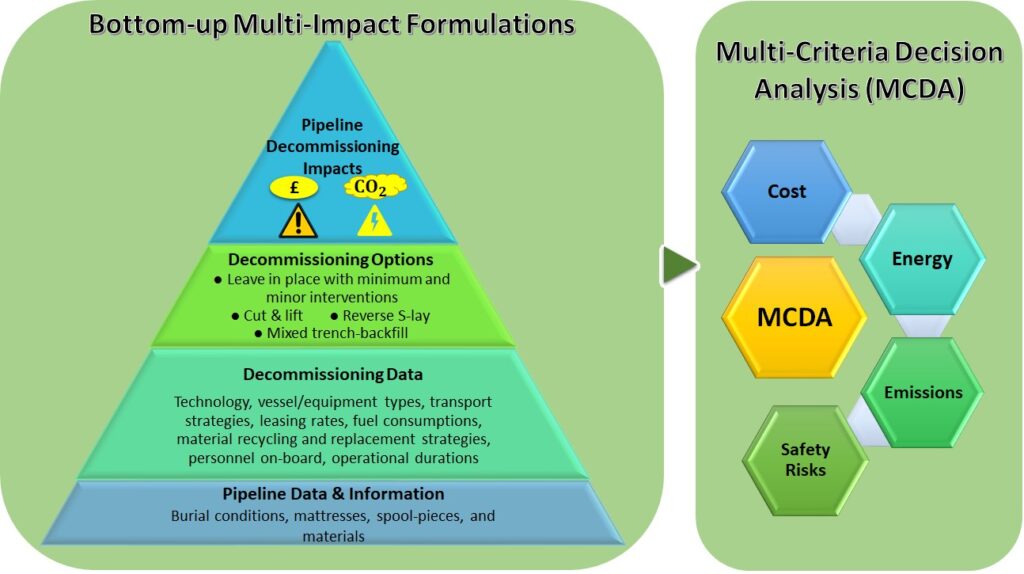
News
A new paper from research fellow Shahin Jalili and colleagues takes a ‘bottom-up’ approach to the multi-criteria decision-making process of pipeline decommissioning projects in the North Sea.
Oil and gas decommissioning projects involve a range of stakeholders with differing priorities across economic, environment, technical and safety elements requiring robust frameworks to guide the decision-making process.
The approach developed uses current guidelines in the O&G industry and considers a range of parameters to provide estimations for the costs, energy usage, greenhouse gas emissions, and safety risks.
To verify the effectiveness of the proposed bottom-up formulations, the longest oil export pipeline in the Brent field, PL001/N0501 was selected as a case study.
Based on the proposed multi-criteria formulations, the study also presents an immersive simulated decision-making environment to help visualise and further inform the decision-making process by stakeholders.
The study is part of the Data for Net Zero (D4NZ) project, a collaboration between The National Decommissioning Centre and the National Subsea Centre and funded by the Scottish Government’s Energy Transition Fund through the Net Zero Technology Centre (NZTC).
Read the full paper here – Bottom-up formulations for the multi-criteria decision analysis of oil and gas pipeline decommissioning in the North Sea: Brent field case study – ScienceDirect
Notes for Editors
| Published | Monday August 5th, 2024 |
